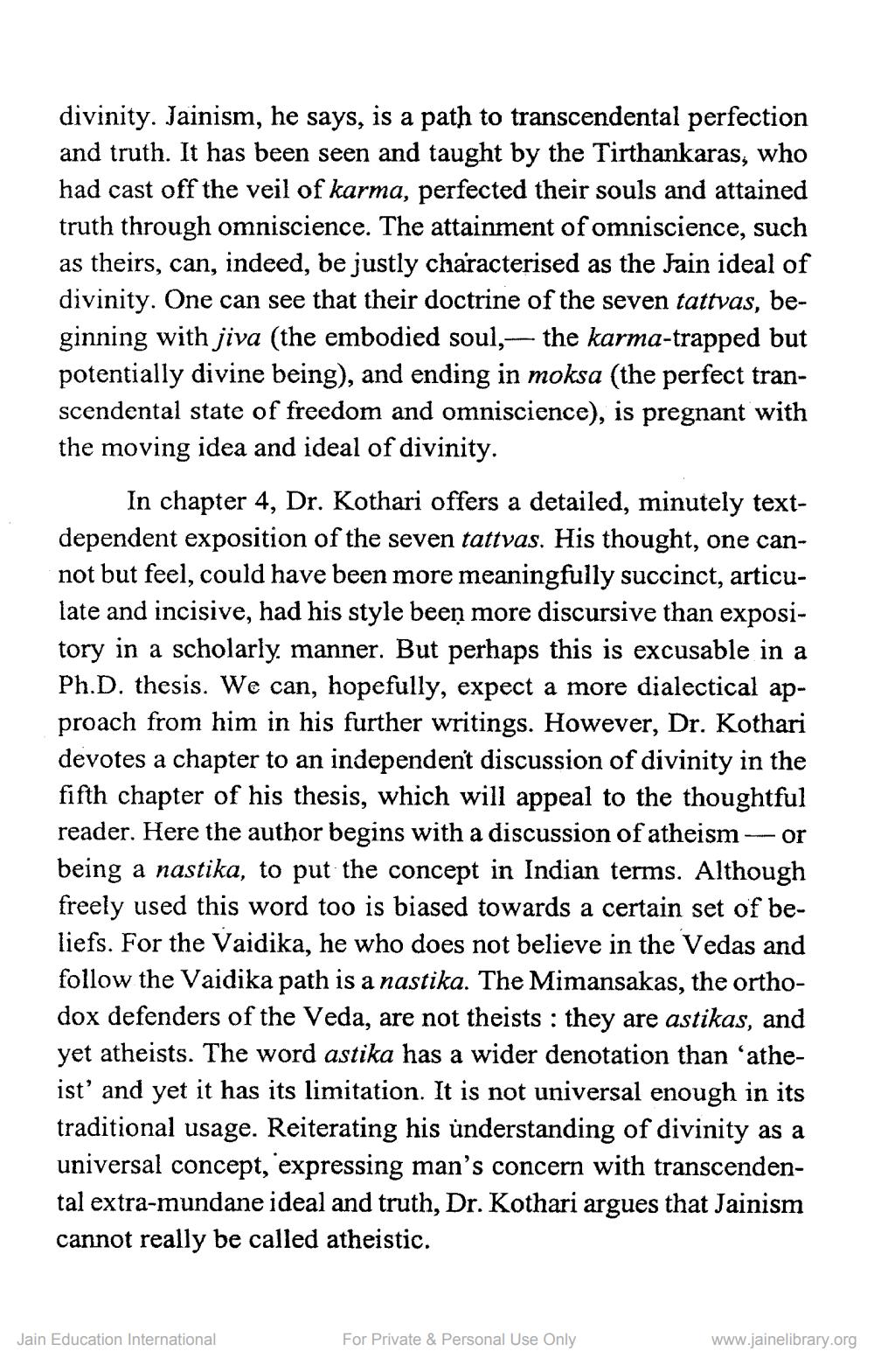________________
divinity. Jainism, he says, is a path to transcendental perfection and truth. It has been seen and taught by the Tirthankaras, who had cast off the veil of karma, perfected their souls and attained truth through omniscience. The attainment of omniscience, such as theirs, can, indeed, be justly characterised as the Jain ideal of divinity. One can see that their doctrine of the seven tattvas, beginning with jiva (the embodied soul, the karma-trapped but potentially divine being), and ending in moksa (the perfect transcendental state of freedom and omniscience), is pregnant with the moving idea and ideal of divinity.
―――
In chapter 4, Dr. Kothari offers a detailed, minutely textdependent exposition of the seven tattvas. His thought, one cannot but feel, could have been more meaningfully succinct, articulate and incisive, had his style been more discursive than expository in a scholarly manner. But perhaps this is excusable in a Ph.D. thesis. We can, hopefully, expect a more dialectical approach from him in his further writings. However, Dr. Kothari devotes a chapter to an independent discussion of divinity in the fifth chapter of his thesis, which will appeal to the thoughtful reader. Here the author begins with a discussion of atheism being a nastika, to put the concept in Indian terms. Although freely used this word too is biased towards a certain set of beliefs. For the Vaidika, he who does not believe in the Vedas and follow the Vaidika path is a nastika. The Mimansakas, the orthodox defenders of the Veda, are not theists: they are astikas, and yet atheists. The word astika has a wider denotation than 'atheist' and yet it has its limitation. It is not universal enough in its traditional usage. Reiterating his understanding of divinity as a universal concept, expressing man's concern with transcendental extra-mundane ideal and truth, Dr. Kothari argues that Jainism cannot really be called atheistic.
Jain Education International
For Private & Personal Use Only
or
www.jainelibrary.org




